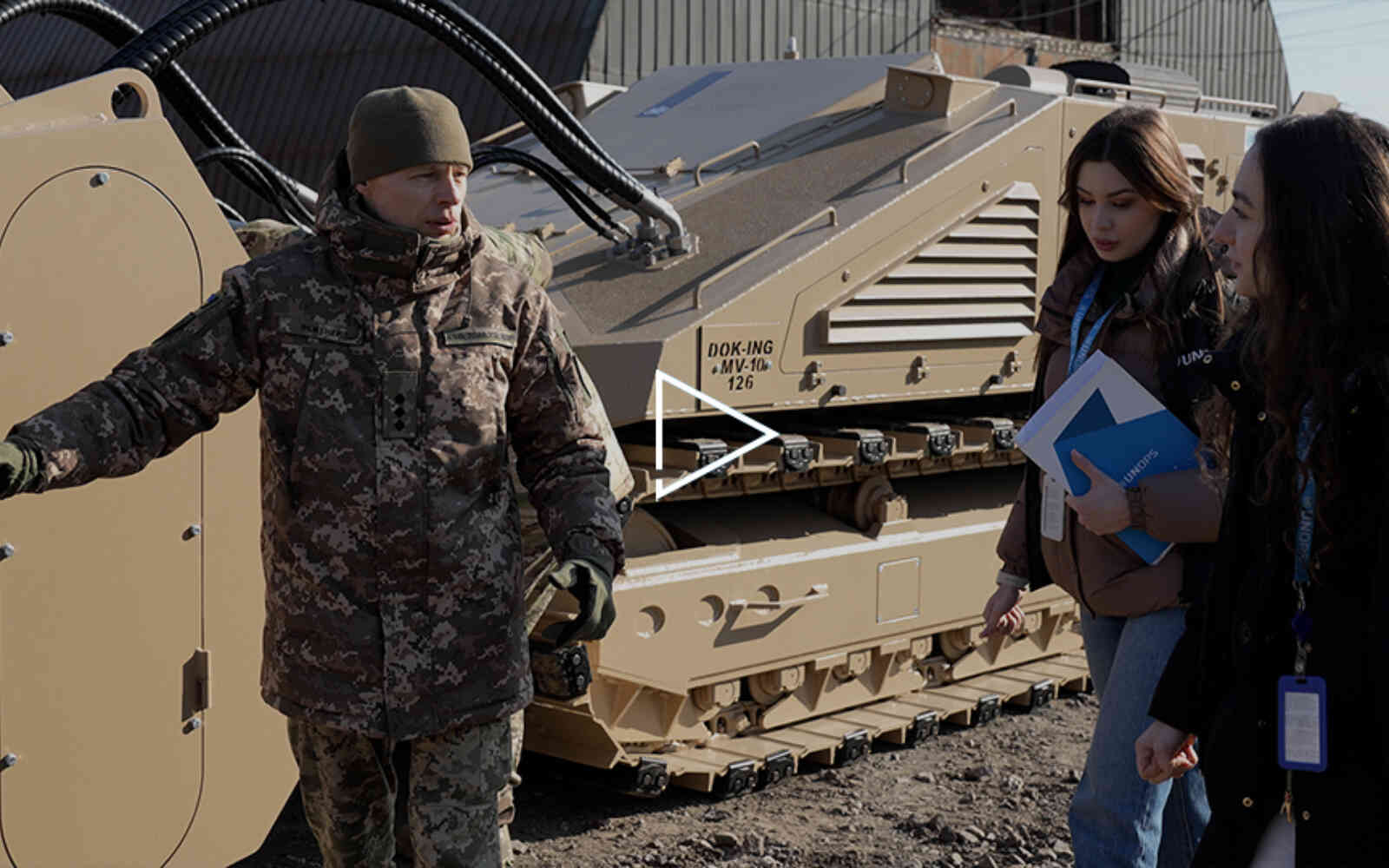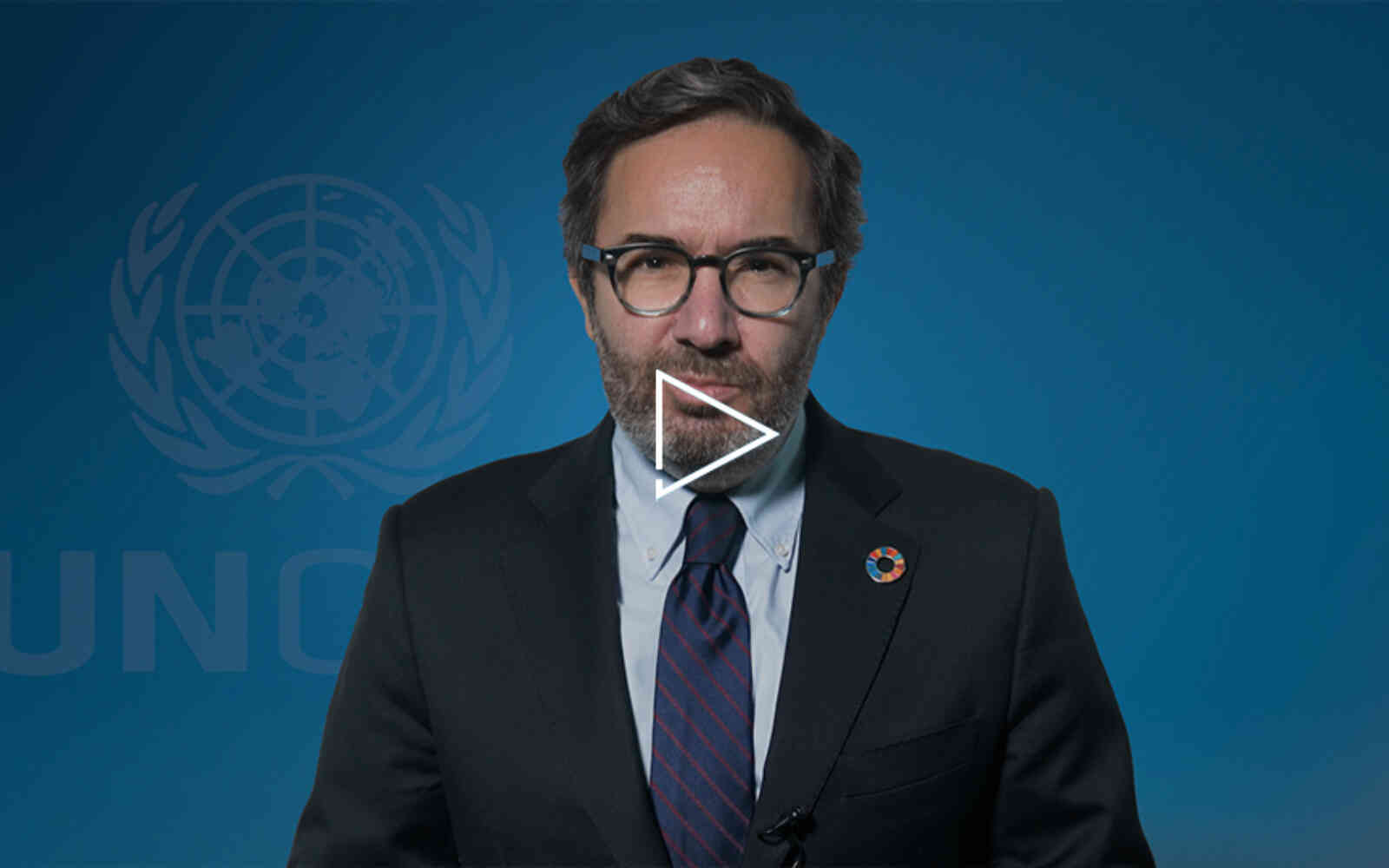The United Nations Office for Project Services (UNOPS)

How can we deploy peacekeeping missions faster?
When it comes to peacekeeping missions, engineers are often the last to deploy. They should be the first. Here’s why.
In the rush to deploy after conflicts flare up, peacekeepers often initially lack what they need to succeed and to keep them safe: infrastructure like camps, passable bridges and drivable roads. These are the very same things that engineers plan and build – and yet engineers are often the last to deploy to a conflict.
Engineers often come at the expense of infantry due to caps placed on troop numbers. In addition, some United Nations Member States do not have engineering contingents to deploy in the first place.
But we can address this problem by creating an engineering capacity that can deploy anywhere and at any time. Composed of engineers from the military, the private sector and the UN, this hybrid contingent would augment – not replace – the work of peacekeepers.
The engineering contingents could lay the infrastructure groundwork for regional and international organizations, enabling peacekeepers to hit the ground running much more rapidly.
Additionally, participants in the engineering contingents could receive on-going field training and mentoring while deployed. This would enable them to fully build capabilities that will both support peacekeeping missions and local communities while also giving them a strong set of skills to use when they return home.
Regional focus for faster deployments
As the UN continues to roll out projects to support engineering, Member States that are part of regional organizations like the African Union should be the focus. Why?
After a Security Council resolution, a peacekeeping mission can take as long as two years to be at full operational capacity – a very long delay when a conflict is raging. For geographical and political reasons, it takes the African Union less time to deploy peacekeepers to a conflict within their region – they can deploy almost immediately after a conflict ignites, though rarely with equipment they need to do their jobs effectively.
For conflicts in the Central African Republic and Mali, for example, the African Union deployed the African Standby Force well before the UN reached required agreements from the Security Council and Member States on UN troop deployment.
This illustrates the changing nature of peace operations. Increasingly, responsibility has become decentralized, moving from global to regional organizations. As such, the efforts to create these engineering contingents should initially focus on regional organizations like the African Union.
Long-term benefits beyond peacekeeping
Many African Union Member States require civil works and infrastructure development more so than in other parts of the world. Not only would such engineering contingents enable more rapid intervention for states in conflict, they would also establish or enhance internal emergency and disaster response capabilities.
There are, of course, details that will need to be worked out for the creation of these engineering contingents. Who will fund them? How will we arrange for heavy machinery to be available – can we make the strategic stocks more available, do we need to buy more or lease it? Which Member States should benefit first?
These, though, are far easier questions to answer than explaining why countries continue to commit peacekeepers to serious conflicts without the basic infrastructure to support them.
These, though, are far easier questions to answer than explaining why countries continue to commit peacekeepers to serious conflicts without the basic infrastructure to support them.
Andrew Reese
Andrew Reese works for UNOPS in New York, where he is responsible for strengthening and expanding the relationship with the UN Secretariat, as well as UNOPS thematic responses on peace and security. He previously managed complex portfolios of programmes for UNOPS and the UN’s Department for Peacekeeping Operations (DPKO) in Cyprus, Jordan, Lebanon, Libya, Iraq, the State of Palestine and Somalia. He has also managed capacity building in support of the African Union Peace and Security Division with DPKO and the European Union.













